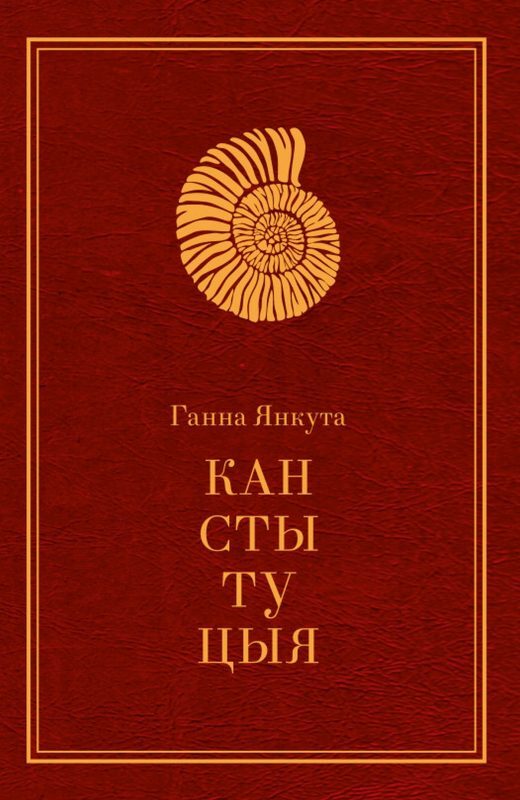In an empty café downtown Stuttgart, close to an open window from which the drops of a typical lazy summer rain still reach me out leaving their temporary traces on the book pages, I am reading Hanna Yankuta’s »Constitution«. The brick-red volume with a contour of the shell on the cover looks inconspicuously boring. Noticing something similar in a kiosk, hardly would I be curious to flip through it. The outer case of the mollusk, however, is misleading–and so is the title of the poetic collection in Belarusian. 130 pages, despite meticulously quoting 63 Articles of the Constitution of the Republic of Belarus, have no juridic dimension.
Due to the changes fraudulently introduced to the Constitution by the country’s ruler Lukashenko already from the first decade of his office in the mid-1990s, today we have no grounds to describe the actual document as a supreme legal one. Self-granting in 1996 the authority to dissolve parliament, appoint judges, and issue decrees with the force of law and in 2022–immunity from prosecution for actions taken while in office, Lukashenko formed in the geographical center of Europe a hereditary monarchy with a Soviet twist and silenced critical voices (more than 1,400 Belarusians are now officially recognized as political prisoners, but their actual number is thought to be much higher).




